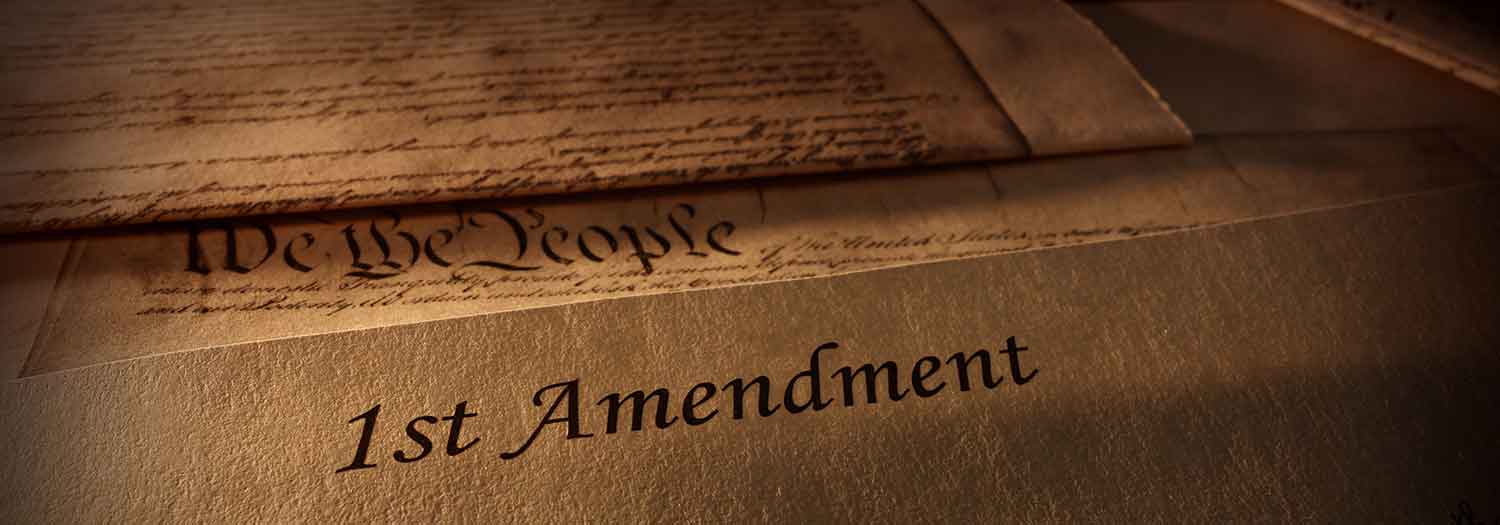- Freedom of Expression and Academic Freedom
- Freedom of Expression
- Freedom of Expression 101

Freedom of Expression 101
The First Amendment of the U.S. Constitution protects important freedoms like speech, press, religion, and assembly. It prevents Congress and other government bodies from making laws that restrict these rights. This protection also applies to state and local governments, including places like Northern Illinois University (NIU).
As a public university, NIU is required to open the campus for people to exercise their constitutional right to freedom of speech. Protecting a person’s right to speak does not mean the university approves or condones the message.
What's Protected and What's Not
The First Amendment is meant to encourage open discussions and safeguard people whose ideas might be unpopular. However, there are limits to what it protects.
Content Regulations
Some laws try to limit specific types of speech or expression, which is generally not allowed unless there are exceptional reasons. Most speech, even if controversial, is protected under the First Amendment. There are only a few narrow exceptions, such as:
- Obscenity: Speech that (1) appeals to the "prurient" interest in sex, (2) is patently offensive by community standards, and (3) lacks literary, scientific, or artistic value.
- Incitement: Urging others to do something illegal that is likely to happen soon.
- Fighting Words: Insults that are likely to cause immediate physical harm.
- Defamation: False statements that harm someone's reputation.
- Perjury: Lying under oath in court.
- Extortion: Getting something through threats.
- Harassment: Severe and/or pervasive conduct directed at an individual causing that person substantial harm.
- True Threats: Clearly intending, or acting recklessly, to hurt someone seriously.
- False Advertising: Deceiving people about a product or service.
- Certain illegal symbolic actions: Like graffiti/damage to property or unlawfully occupying an office space/building.
Conduct Regulations
Laws can also regulate how and where people express themselves, but these rules must be fair and not aimed at stopping specific ideas. These are called "time, place, and manner" regulations. For example:
- Time: Limiting loud sounds to certain times of day.
- Place: Banning protests right at the entrance of buildings.
- Manner: Setting limits on the size of signs or flyers.
These regulations are more likely to be allowed by courts as long as they are not used against particular viewpoints.
Understanding these rules helps protect free speech while balancing the need for public order and respect for others.